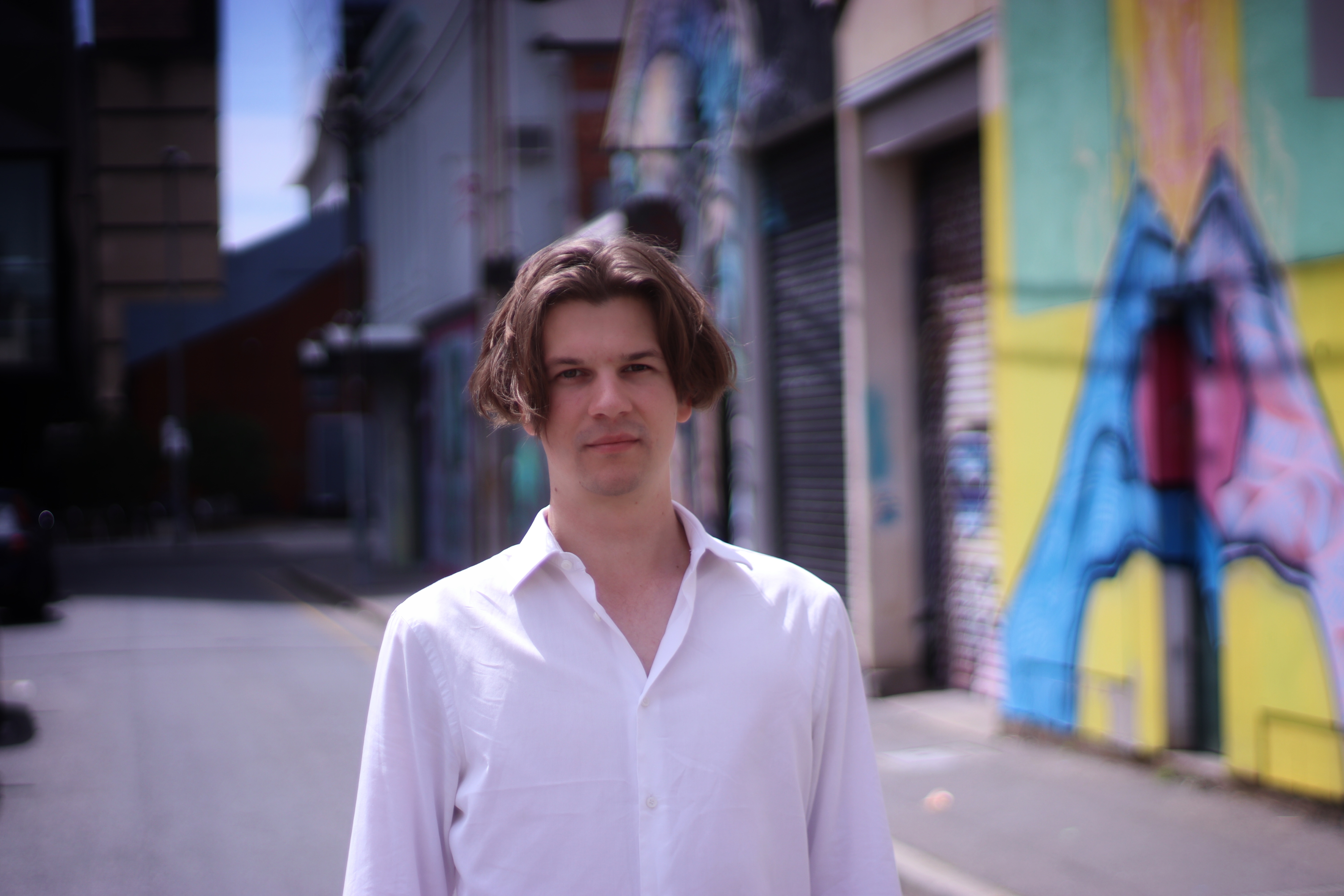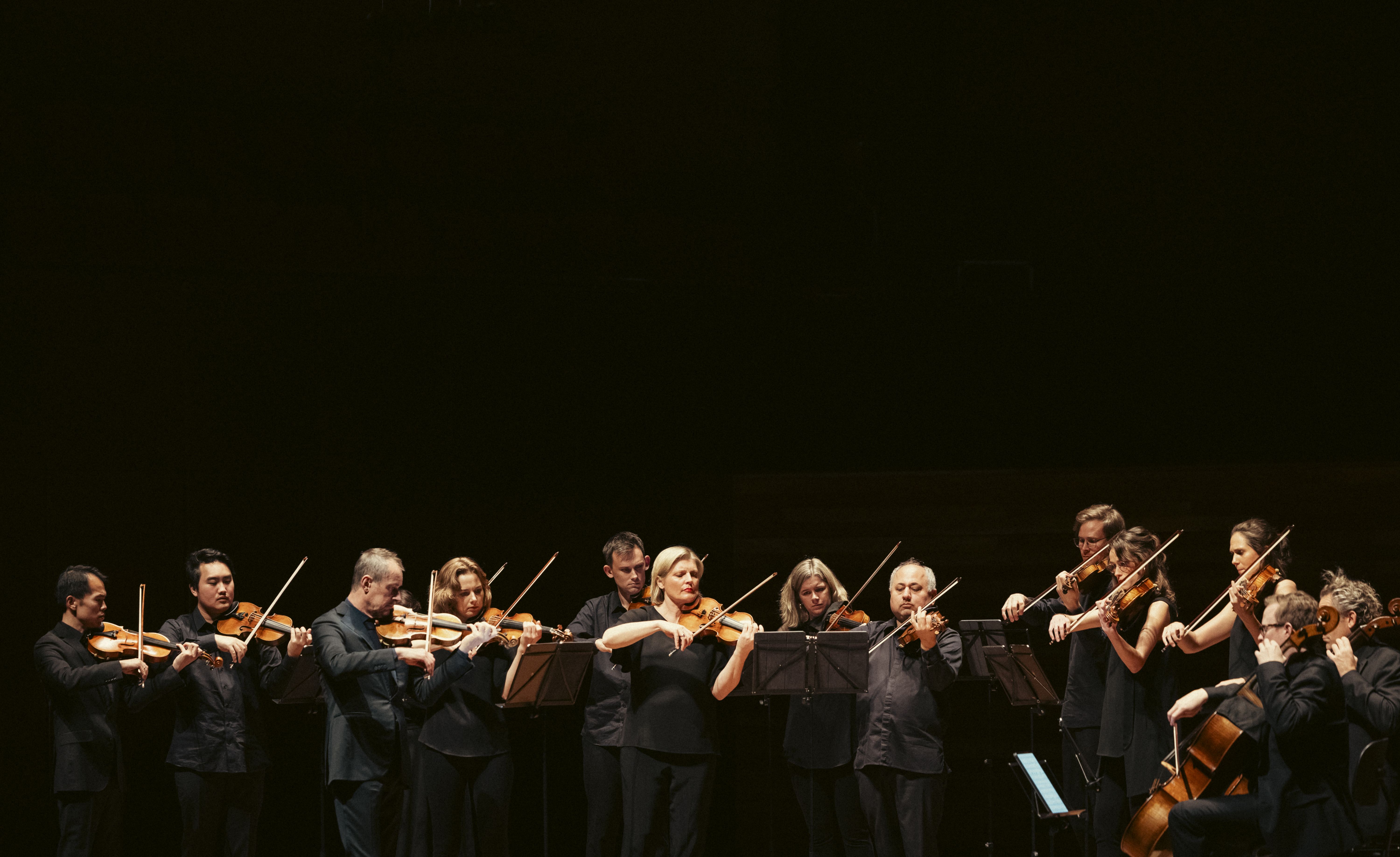
By Neha Kale
Jakub Jankowski believes that music owes its power to a realm beyond the sonic. The renowned young composer has long been attuned to the relationship between rhythm and image – how a melody can tap into the unconscious or stir emotions to life. Although Jankowski attended his first concerts as a teenager, he was introduced to the classical repertoire through film.
“I recall encountering the music of Krzysztof Penderecki, a 20th-century Polish composer who I found through Stanley Kubrick’s The Shining,” he says. “Music interplays with the imagination. We can use it consciously or unconsciously. We can imagine scenarios.” He pauses. “I have an association with certain sounds – when you can taste or see the music. I love music that is vivid, somehow.”
Jankowski, a gentle presence who weighs his ideas carefully, is speaking from his home in Adelaide. Succulents line the windowsill. The room is filled with dappled light and, in the background, open notebooks sit atop a grand piano. This month Jankowski premierew a new commission for the Australian Chamber Orchestra, part of a program that includes Mendelssohn’s Octet and Bach’s Violin Concerto in A Minor.
It revolves around the ritornello – Italian for “little return” – a musical structure that was popular during the baroque period but was later eclipsed by the sonata. “The Bach concerto that is featured on the program uses the ritornello form in its first movement,” says Jankowski. “It’s something that all music shares. You have this statement or refrain and the music returns to that.”
Jankowski is a keen observer of patterns in the natural world. Working on the ACO commission, written for 11 strings, he took regular walks, sometimes visiting trails around the Kuitpo Forest, outside Adelaide. “There are frog calls that made their way into the work,” he smiles. In writing new work, he embraces elements of mystery. “Even the way that material is generated,” he says. “One day, I’ll have a life where I have stability but, for me, the creative process is rather chaotic.”
*
Jankowski, the son of Polish migrants, didn’t come from a musical family but he started studying classical guitar as a sixyear-old. “[My parents] saw learning music as part of a good, well-rounded education,” he says. Later, he became captivated by the cello, playing in the Adelaide Youth Orchestra and going on to study at the Elder Conservatorium of Music. There, with friends, he helped found the Maple String Quartet.
“You are learning by doing it,” he says. “There is a lot of academically rigorous music-making. But [for me], I think music functions at the level of the instinctual. That is the wellspring.”
In 2017, Jankowski premiered a cello sonata, Aspects of Return, performed around the country by pianist Aleksandar Madžar and cellist Nicolas Altstaedt. The work, commissioned by Musica Viva, revolved around three movements that referenced thinkers from psychology, philosophy and poetry: Carl Jung, Heraclitus and T. S. Eliot. For Jankowski, Aspects of Return referenced the types of “returning” that recur in music. But it also alludes to the ways in which music can be a portal to former selves.
“Works use what came before to create a dramaturgy of the form,” he explains. “Sometimes in a devastating way – the return of the repressed. But there’s a more beautiful aspect of that. It expands the scope of life [when] you find connections between different experiences.” To write Eclogue, a 2023 trio conceived for Satsuki Odamura, a master of the koto – an ancient Japanese instrument – and cellists Jean-Guihen Queyras and James Morley, Jankowski embraced the spiral, a shape that recurs in nature. “An eclogue is a poetic form to do with a pastoral type of subject matter,” he says. “The work makes use of Fibonacci structures and you can play around because the proportions change.”
This playfulness extends to Jankowski’s ACO commission. The composer, who feels an affinity with works from Eastern Europe, will embed a Ukrainian folk song within the ritornello. It’s a tribute, he says, to the great Armenian director Sergei Parajanov, who struggled with the Soviet authorities.
“I found the song through a wonderful film from 1965 called Shadows of Forgotten Ancestors,” says Jankowski. “It’s this love story set in a Hutsul village in the 19th century. He is an avantgarde filmmaker who draws on lots of folk cultures. There is a surrealism in his work, related to a dream way of thinking.”
Jankowski talks about music as if it can transport us between the everyday and otherworldly. It can shuttle us between the past and the present. Or it can make time stop.
“There is a quote in which Milan Kundera talks about speed in relation to memory,” he says. “In music, it relates to the different materials coming back, the speed at which you change between musical materials.” He grows quiet for a moment. “If you stay with one musical idea, there’s a way in which [time] feels like it’s going by slower.”
Written by Neha Kale
Neha Kale is a widely-published writer and critic. She wrote The Influence column for The Saturday Paper, is a former SBS columnist and was editor and editor-at large of VAULT. Her literary work has been recognised with a Faber Scholarship for Creative Nonfiction and highly commended in the Ann Moyal Nonfiction Fellowship. She is a 2024 Artist in Residence at Bundanon.
Hear Jankowski's Ritornello in Tognetti. Mendelssohn. Bach., touring in Australia until 23 September. Click here to buy tickets.
